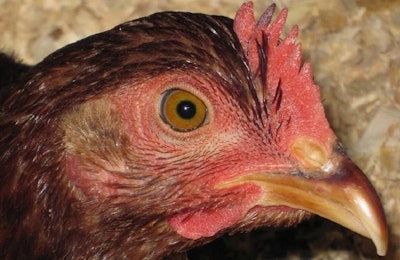
New reports have been received over the last two weeks by the World Organisation for Animal Health (OIE) of recent outbreaks of highly pathogenic avian influenza (HPAI) in Cote d’Ivoire, Ghana and Nigeria in Africa. The virus has also been detected in a new duck flock in France, and there has been an increase in cases in Indonesia.
African avian influenza cases
The veterinary authority of Cote d’Ivoire (Ivory Coast) has reported to the OIE 10 new cases of HPAI, all of the H5N1 subtype. Starting between mid-March and the beginning of July, the 10 outbreaks affected 33,348 poultry, 4,248 of which died and the rest were destroyed. All cases were in the southwest of the country; two backyard flocks in the state of Bouake were affected, along with markets and farms in Abidjan and Agnibilekrou. Affected premises have been depopulated and disinfected.
Nigeria has been battling HPAI since January of 2015 but the veterinary authority has reported to the OIE just one new outbreak, affecting 1,647 birds in a mixed poultry flock on a farm in Oyo state in the southwest of the country. Around half of the birds died but the fate of the rest of the flock has not been recorded. The presence of the H5N1 variant of the virus has been confirmed.
Three new HPAI outbreaks caused by the H5N1 virus have occurred since early July in Ghana. The most recent one was in a backyard flock in Greater Accra in a flock of 609 local and exotic birds, most of which died from the infection. Previously, a backyard flock of 1,834 laying hens succumbed to the disease in Central state, as well as 451 immature layers and free-range local poultry in Greater Accra.
The Central African country of Cameroon recorded its first HPAI outbreak in May. The veterinary authorities have reported a total of 17 outbreaks affecting more than 67,000 birds to the OIE, the last of which started on July 4th.
More avian flu in France
The ministry of agriculture in France has reported the detection of an HPAI virus belonging to the H5 family in a duck flock in Cruejouls in the department of Aveyron. The flock comprises around 11,000 birds, ready for fattening. This is the second flock to be affected by the disease in this department and it brings the total for the country since December of 2015 to 81. Ten departments have produced HPAI virus-positive results, all in the southwest of the country.
Indonesia aims to eradicate avian flu by 2020
A recent report in Jakarta Post to an increase in cases of avian flu in Indonesia’s poultry this year. In 2007, there were 2,751 cases in birds, falling to 1,390 in 2011. For the first three months of this year, there were 188. There was an increase to 123 cases to July, which was attributed to an increased challenge to the birds’ disease resistance arising from extreme weather.
Most of the outbreaks this year have been in West Java, Lampung and South Sulawesi. Recent cases include almost 27,000 ducks that died in Sidrap in South Sulawesi, and 1,600 chickens and ducks succumbed to the disease in Banuwangi.
Coordinator of the avian influenza control unit at the agriculture ministry in Indonesia, Muhammad Azhar, urged farmers to report mass mortalities promptly, follow biosecurity procedures and vaccinate their birds correctly with the aim to achieve the government goal to eradicate HPAI from the country by 2020.
Hopes are being pinned on a new vaccine factory, according to another report in Jakarta Post. With an investment of US$100 million, the new plant will be run by PT Biotis Prima Agrisindo, which is a joint venture between two Chinese partners - pharmaceutical giant, Pharmally International Holding Co. Ltd. and state-owned enterprise, Harbin Weike Biotechnology Development Company. Located in Bogor in West Java, this will be the country’s sixth vaccine production site. It will initially focus on production of avian flu vaccines in order to provide the market with quality vaccines that are more competitively priced, helping to meet the disease eradication target date.
















